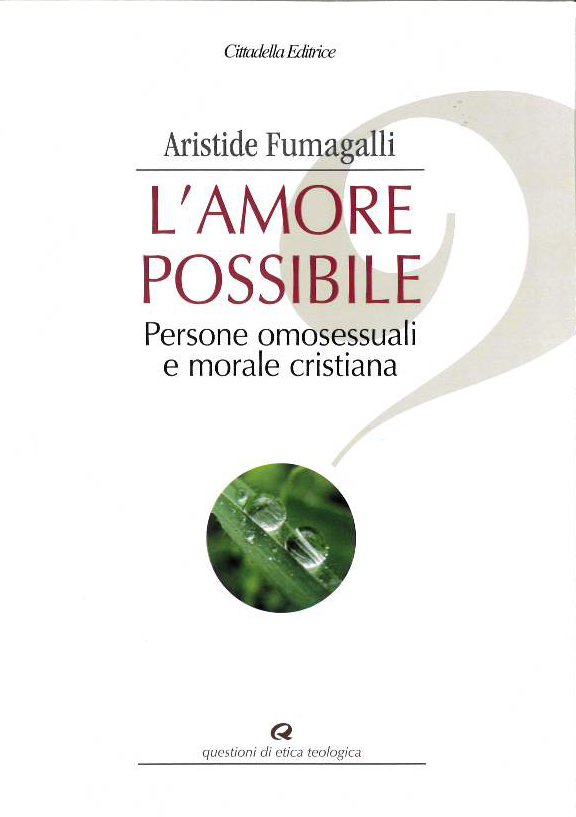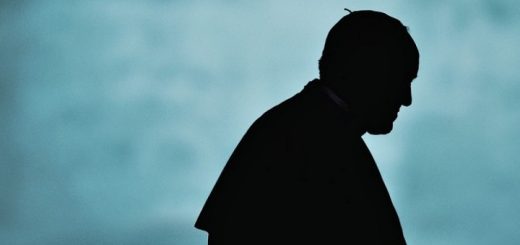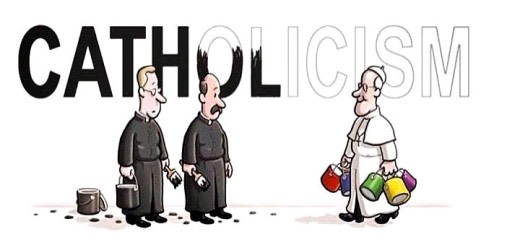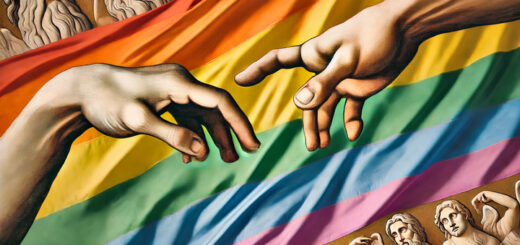Homosexuals, the necessary answers. Bishop Semeraro: "It is urgent to outline a pastoral path"
Interview by Luciano Moia in Msgr. Marcello Semeraro published in the newspaper Avvenire on October 14, 2020, p.18
Faced with the suffering of homosexual people left on the margins of our ecclesial communities "a shepherd must ask himself how to accompany, discern and integrate everyone, none excluded". Marcello Semeraro, bishop of Albano, author of the preface to the book by Don Aristide Fumagalli, underlines it, Possible love, of which we speak in the article below.

I am a bishop, which has been entrusted with the care of a local Church, where the issues addressed in this volume are present and several levels: the general ones, of course, as I am in fact in every Christian community, but there is also the fact that for some years, precisely in the diocesan territory and within a religious structure, reflection meetings are periodically carried out on how to welcome and, therefore, accompany, discern and integrate the experience of faith of homosexual people (Italian forum of Christians LGBT).
Deliberately resort to the verbs chosen by Francesco in Amoris Laetitia For the simple fact that they seem to me not to have to reserve for only one scope of the pastoral care, but they are rather able to outline a truly "full" pastoral project.
This, if it is worth what is written there, that is, that it is a question of integrating everyone, each one must help to find their own way of participating in the ecclesial community, so that it is being the subject of a "undeserved, unconditional and free mercy" (n. 297 ).
So in the perspective of mercy it would be possibleDo you open up to a further evaluation of love between two homosexual people?
I do not intend to enter into the merits of issues of moral theology, which will certainly be discussed and deepened with the methodological rigor and the skills of those who are expert on the subject. But the commitment with which in this volume tries to understand to what extent the two pillars of the doctrine about sexuality and marriage is very important: the procreative purpose and sexual relationship within male-feminine polarity, are applicable to the homosexual condition. This essay has the great value of courageously tackling a theme of serious pastoral urgency and does it with careful listening to the realities experienced by homosexual people, with scientific rigor, recovering and rereading what the tradition of the Church has developed. There is also a comparison with the most recent acquisitions in the field of homosexuality.
From this theological-moral reflection on homosexual love what pastoral consequences can we imagine?
To me, precisely for the questions and suffering I mentioned, the pastoral profile is to heart and this starting from what I read in the catechism of the Catholic Church regarding those who present homosexual tendencies: «They must be welcomed with respect, compassion, delicacy. In this regard, every brand of unjust discrimination will be avoided "(n. 2358).
Ora, questo volume ci ricorda che il tema dell’omosessualità̀ oggi deve senz’altro essere considerato, anche nella Chiesa, come realtà̀ umana dalla quale non ci si può̀ estraniare. L’azione ecclesiale, o pastorale, ne è sempre più̀ coinvolta ed è cosa che io percepisco nel dialogo coi miei collaboratori e gli operatori pastorali nei diversi ambiti, fra cui al primo posto ci sono la catechesi, la pastorale per l’educazione e la scuola, la pastorale giovanile e quella della famiglia.
In questa prospettiva, scrivere un testo di teologia morale sull’omosessualità̀ è un gesto che, all’interno della panoramica della nostra Chiesa oggi, si rivela anche necessario perché́ aiuta a riflettere su una realtà̀ che ci pone domande in parte nuove e, certamente, anche difficili, ma proprio per questo meritevoli di ascolto. Si tratta di una riflessione utile per affrontare, in modo più̀ ampio e globale, una tematica che spesso è posta in forme semplicistiche e riduttive, a volte persino ideologiche, creando, nei singoli e nelle comunità̀, situazioni di conflitto e di profonda sofferenza.
Lei ha incontrato diretta- mente persone omosessuali che le hanno espresso questa sofferenza?
Un incontro che non riesco a dimenticare è stato quello con i genitori di un giovane che, a un certo punto della sua vita, aveva confidato loro di essere omosessuale. Come sacerdote e vescovo io posso soltanto intuire ciò che in tal caso può accadere nel cuore di un padre, di una madre.
This that, however, they meant above all to communicate me was not so much the fact in itself, but making me participate in the question that tormented them: was it true that, to be homosexual, their son was to be considered excommunicated? The question surprised me and not a little. As soon as I reassured them of the fact that to be excommunicated it takes other things, raised by this news they began to cry.
For them it was as if a boulder had been removed from the heart; In the face of those tears, however, I felt the weight on the heart: how is it possible that, instead of accompanying situations already in itself extremely complex, do we even make so much complexity inextricable?
What answer possible?
I think that I asked questions - and tears - like these a shepherd cannot and should not exempt himself from the triple listening methods declined in terms of accompanying, discerning and integrating.
You can't escape questions like: God, where is this person in the life of this person? What is your salvation design for him/her? How can we, as a Church, be a tool and a meeting place, for this precise person, with the mercy of God?






